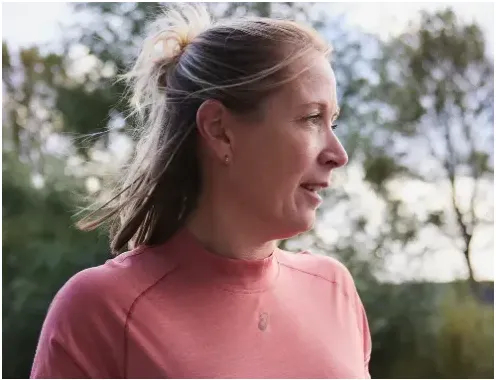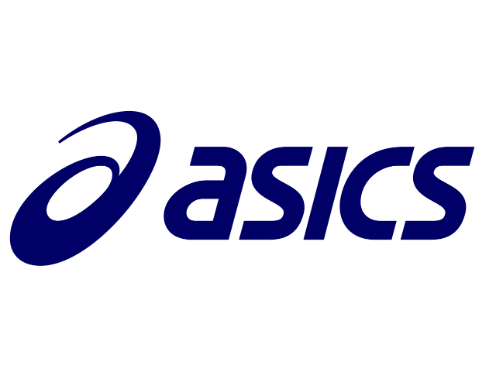Katja Meeuwsen-Nass - Vice President of Human Resources at ASICS EMEA


Katja Meeuwsen-Nass is the Vice President of Human Resources at ASICS EMEA, a global sportswear company that focuses on supporting a sound body and mind. Katja has remained with the company for 12 years, beginning as a HR Project Associate. She shares an in-depth look at her role and the company’s internal initiatives as well as the visible changes in the Dutch employment market.
How would you define the role of a VP of Human Resources?
There are a few aspects. One is to be an advocate for employees. That's not to say I'm the only member of the executive team doing that - absolutely not - but I think I have it top-of-mind more than others. I'd be doing something wrong if that wasn’t the case. To really think about whether we’re doing right by our employees. Or ‘Is this the right direction to go in?’
The other part is to look at the changes in the workforce and the marketplace, identify what we need to do as a company to make sure that we secure the best talent and see how we need to adapt. I also believe that the HR VP or CHRO should have a seat at the executive table for that purpose. Some companies have a different setup and that may work, but if you want to be a great employer and keep getting talent into your company, we definitely need a seat at the table.
What changes have you seen to the Netherlands employment and what in your opinion have been the real key drivers for this change?
We have boomers and millennials in the workplace, but now Gen Z is entering and that has been interesting. People coming into the workforce demand more and maybe this has been heightened by COVID. I recently listened to a keynote speaker who had conducted a study in America, where it seems the younger generation no longer has a ‘dream job’; they’re focused on saving the planet and doing things of value and with purpose. I see that more and more.
Also, we have more people who work four days a week, not necessarily because they have a family to take care of, but because they want more free time to do other things. The newer generation is looking for companies with purpose and jobs they will enjoy. Of course, I am generalising a whole generation, but for them, it is less about a certain title or paycheck.
How do you foster a positive and productive work environment, especially in challenging times at ASICS?
It can be difficult. Of course, there was the pandemic but there are also different things that are happening around the world. At ASICS, we're quite open about the challenges we see, we discuss the solutions and actions we can take. There’s a lot of teamwork and collaboration that goes into addressing challenges, facing them with an amount of positivity and saying, ‘This is what we can do, so let's go for this.’
Can you describe the culture at ASICS?
We’re a global company with headquarters in Japan and we have a set of values that our founders first described 75 years ago. Out of all six values, I think two really come across in the workplace, ‘Be courteous’ and ‘Work as one team’.
It’s quite a flat organisation; very friendly and international; so in our EMEA headquarters, we have many different nationalities, and we all have an affiliation with sports or are passionate about sports. That's also something that makes ASICS a unique place to work.
How does ASICS ensure a fair and inclusive interview process?
In the last four to five years, we have implemented a few initiatives to ensure our process is more inclusive and non-biased.
Firstly, our recruitment staff and managers are trained to be aware of and recognise unconscious bias. Also, the recruitment team ensures we have a diverse hiring committee. That involves gender and ethnicity, but also diverse minds to allow for different perspectives and challenge each other's thoughts – an interviewee may be good, but what's underneath the surface?
More recently, we've introduced a scorecard to assess skills and quantify values, to allow for accurate reflection. Results show that a higher quality interview is produced as people are more inclined to ask better questions and go into detail instead of judging at face value.
Technology can assist with creating a fair and inclusive interview process, but usually, it comes down to people sitting down and chatting.
What does ASICS do to raise awareness around mental health and well-being within the company?
This is an important topic for everyone and one of my favourite areas to discuss.
If I compare now to the 1980s, there has been a generational shift. For instance, my mum was a stay-at-home mum who dealt with the household and private matters and my dad was the breadwinner. For others, the roles were reversed, but there was a clear breadwinner and parental figure, each focused on different tasks instead of sharing them.
Now, more of us go to work and since COVID-19, more of us bring work home. Many of us can no longer compartmentalise our lives or our roles in society anymore. The numbers don’t lie; burnout and stress are on the rise.
ASICS stands for ‘Anima Sana in Corpore Sano’, meaning Sound Mind in a Sound Body, which is our purpose. A few years ago, we noticed that we were using that in our marketing campaigns, but we weren’t necessarily focusing on it enough internally. People at ASICS work hard and are, at times, stressed.
As we tried to make our purpose come to life more internally, COVID hit, and everything was derailed slightly. Since COVID, the workplace has become a space where well-being is valued as much as productivity and engagement; if your well-being is good, then your engagement and productivity increase.
We identified four areas of well-being to focus on throughout the year. Twice a year we have an ‘uplift week’. Our most recent one really embodied what we stand for: we played games and took part in wellbeing workshops such as mindfulness or discussing the female cycle and how it impacts work. Another focus was on financial well-being. So, there are many different aspects of wellbeing that we touch upon to make people feel engaged.
I think COVID sped up the importance of wellbeing, speaking out, having the flexibility to move around and building connections in the workplace...
I agree. It was quite funny at the beginning of COVID where a lot of people spoke virtually and hadn’t quite figured out how to add screen backgrounds. It was nice to have the ability to ask, ‘What's that picture that I see in the background?” and build more of a connection and learn about someone’s personal life.
I'm not sure how it was across Europe but for a lot of our people in the Netherlands, schools closed it was of course a real struggle for some. But it also gave us a common experience; something we were united in to talk about.
Looking at career advice, what strategies would you suggest for someone looking to pivot their career into a new industry?
When you are looking to enter a different industry, look at the skills that you have acquired and how you can apply them differently. There are lots of transferable skills. For example, if you’ve been working at ASICS, Nike, or Puma, but would love to go into FMCG, a lot of your learnings would be transferable. We sometimes hire from outside of our industry because people have certain talents and skills that we won't find as quickly within it.
The other piece of advice is about networking and using your network to get into the area you want to be in. Familiarise yourself with people and strengthen your industry understanding.
How do you anticipate the role of Vice President of Human Resources will evolve as technology advances?
Looking at HR in general, some repetitive tasks will be automated, which I believe is a good thing. Some areas of recruitment, like selection, are going to be much more advanced with AI; for example, you go straight into the first round of interviews instead of spending time on sourcing.
I think the role of VP will evolve to include how we utilise AI in a morally correct way - that's another big debate. Also, to ensure the workforce in HR and elsewhere is ready. What skills we will need to utilise AI? It will require critical thinking and problem-solving skills to ensure it’s implemented correctly.
The human connection side and the managerial aspects: taking care of your team, motivating and engaging people are areas that will grow in importance over the coming years.
How do you ensure that your strategic decisions align with both the company values and market demands?
That is always top-of-mind. At ASICS, we start with our strategic vision and three-year plan, created by the executive team and various experts in the company, which is signed off by the team in Japan. I also look at the plan and what we need to do as an HR management team for the workforce or organisation to ensure its success.
On the one hand, it's around making an organisation fit for purpose, but also looking at what's going on in the world, to ensure that we not only have the right people but we allow them to do a good job and thrive.
Market demand is probably a more difficult question. Some trends and fads come and go. I think we're lucky at ASICS as our purpose and our values are quite stable; as I said they were created by the founder 75 years ago and our purpose is our name. I think there's always been a relevance to sports, but now probably more than ever; a lot of people benefit from sports, so that's a good thing.
It’s interesting to observe different trends, like staying up to date with progress in AI. Within that, be true as a company to who you are. We’re not at the forefront of those changes but it's good to be mindful of what’s relevant to us. In general terms, it's important to stay true to your company values and grounded in what you think is the right thing to do.
What are the three challenges ahead for you as the VP of Human Resources at ASICS?
I feel old when I talk about this but the newer generations – and employees in general – are looking to develop relatively quickly through promotion. It's quite difficult to keep up with that pace because you can't have everyone walking around with a director title; you need a certain balance. Another challenge for the coming years will be exciting, rapid change in the way we work for example due to AI.
The third one would be the globalisation of our company, beyond Europe. We're looking at global talents, engaging people in global projects. I believe that’s a really positive development but at the same time, you're asking people to work from different time zones within different structures. It can be challenging and is something to be mindful of.
Who did you most admire as a child and why?
The person that pops into mind is Madonna as I had posters of her in my bedroom. There was something versatile about her, she continuously reinvented herself and pushed boundaries. So, she was quite out there.
Thank you Katja for speaking to Laura Summerson in our Human Resources recruitment team in the Netherlands.
Views and opinions contained within our Executive Interviews are those of the interviewee and not views shared by EMEA Recruitment.






You can also use your social account to sign in. First you need to:
Accept Terms & Conditions And Privacy Policy